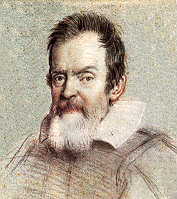 "Galileo
e a rotação da Terra"
"Galileo
e a rotação da Terra"
Artigo publicado em: Caderno Catarinense de Ensino de Física 11 (3): 196-211, 1994.
Resumo: Este trabalho analisa dois argumentos de Galileo Galilei relativos à rotação da Terra, de sua obra "Diálogo sobre os dois principais sistemas do mundo". Em um deles, Galileo defende a rotação da Terra contra o argumento de extrusão dos corpos por rotação. No segundo, Galileo procura evidenciar a rotação (e translação) da Terra pela existência das marés. Mostra-se que nenhum dos dois argumentos era satisfatório, para a Física da época. Conclui-se que Galileo nem conseguiu nem defender adequadamente a teoria copernicana contra os ataques da época, nem apresentar evidências positivas convincentes a seu favor. O artigo comenta também a relação entre esses pontos e dificuldades educacionais atuais.
Paper published in: Caderno Catarinense de Ensino de Física 11 (3): 196-211, 1994.
Abstract: This paper analyses two of Galileo Galilei's arguments concerning the rotation of the Earth, published in his book "Dialogues on the two chief world systems". In one of these arguments, Galileo defended the rotation of the Earth against the argument that such a rotation would eject bodies from the Earth. In the second one, Galileo tried to argue for the rotation (and translation) of the Earth using the existence of the sea tides as his evidence. The article shows that neither of the arguments was satisfactory, taking into account the physics of that time. The conclusion is that Galileo was unable either to adequately defend the Copernican theory against the attacks it suffered at that time, nor to present positive evidences for the motion of the Earth. The paper also comments the relevance of those points to current educational difficulties.